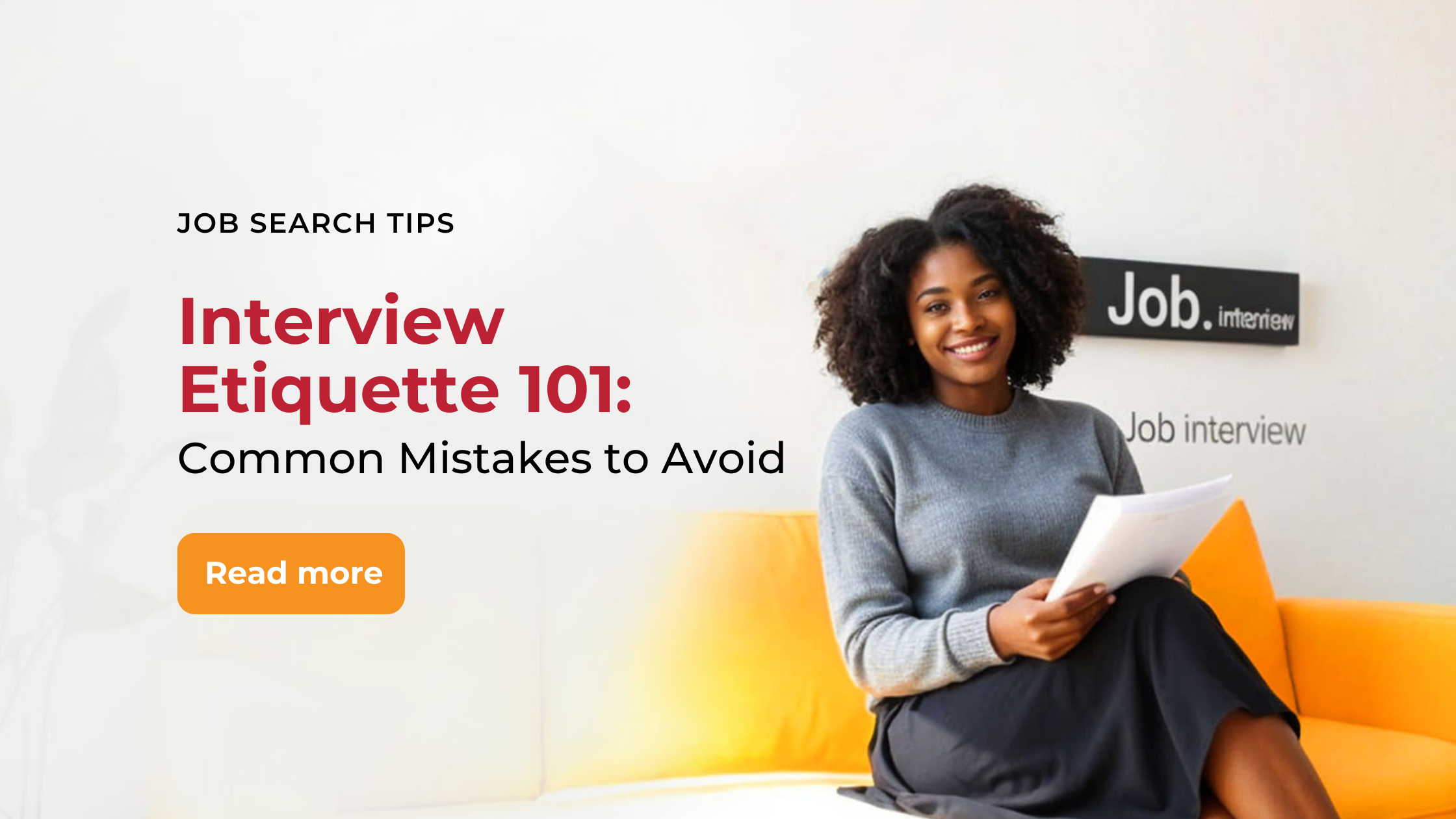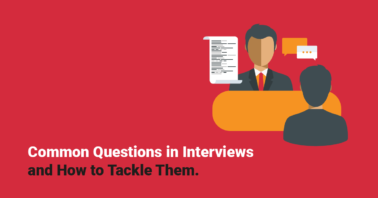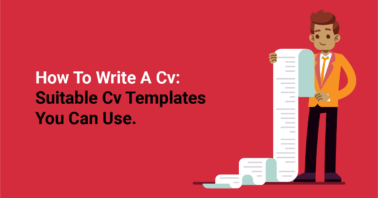Interviews can be nerve-wracking! We’ve all been there—heart racing, palms sweaty, hoping to make a great first impression. But beyond the nerves, there’s one thing that can really help you stand out: mastering the art of interview etiquette.
Let’s talk about some common mistakes job seekers make and, more importantly, how to avoid them to land that job you’ve been eyeing!
Table of Contents
1. Arriving Late (Or Too Early!)
First things first—punctuality is key. Showing up late signals disrespect for the interviewer’s time, while arriving too early can come across as over-eager or even awkward. The sweet spot is arriving 10–15 minutes before your scheduled interview. That way, you’re not rushed, and you give the interviewer enough breathing room before your session.
Tip: If it’s a virtual interview, check out this guide on preparing for an online interview and test your setup at least 30 minutes before. Technology glitches can be just as problematic as being late in person!
2. Not Tailoring Your Presentation
Your presentation should be aligned with the role and company culture. For example, if you’re interviewing for a creative role, you can afford to show some personality in your outfit. But if you’re interviewing for a more corporate role, keep it formal. Dressing appropriately shows respect for the role and the company.
Tip: Research the company’s dress code beforehand. And remember, grooming and personal presentation matter just as much. Check out this article on dressing for interviews.
3. Skipping Company Research

Imagine walking into an interview and not knowing anything about the company—yikes! It’s like showing up for a date and not knowing the other person’s name. One of the biggest mistakes you can make is failing to research the company. Get familiar with their mission, values, and the role you’re applying for. It shows genuine interest and can help you tailor your answers.
Pro Tip: Browse the company’s website and social media to understand their culture.
4. Talking Too Much (Yes, It Happens!)
We’ve all had those moments where we get carried away with an answer and keep rambling. While it’s important to elaborate on your experience, knowing when to stop talking is just as crucial. Rambling can dilute the power of your message and even make the interviewer lose interest.
Tip: Practice your responses to common interview questions. Try to keep answers between 1-2 minutes unless prompted for more details. And if you find yourself going off track, gently steer the conversation back to the main point.
5. Poor Body Language

Even if you’re saying all the right things, your body language can send mixed signals. Are you slouching? Fidgeting? Crossing your arms? All of these are no-nos! Professional posture can show you’re engaged and confident. Sit up straight, make eye contact, and avoid nervous habits like tapping your feet or playing with your hands.
Tip: Practice your posture in front of a mirror or with a friend. You’d be surprised how much it can affect the impression you give off.
6. Not Communicating Clearly
Clear articulation and effective communication are essential in interviews. If you mumble, speak too quickly, or use too much jargon, you risk losing the interviewer’s attention or leaving them confused. Make sure you’re speaking slowly and clearly, using strong diction.
Pro Tip: If you’re unsure how to pronounce something, it’s okay to take a breath and compose yourself before answering.
7. Not Listening Actively
Interviews are a two-way conversation, and active listening is just as important as giving great answers. If you don’t listen carefully, you might miss important cues from the interviewer or fumble through your response. Plus, active listening shows respect and engagement.
Tip: Nod and give visual cues that you’re listening. When the interviewer asks a question, take a moment to process before jumping in with your response.
8. Lack of Confidence or Overconfidence
Confidence is a balancing act. You want to appear sure of yourself without crossing the line into arrogance. Interviewers are looking for candidates who can confidently communicate their abilities but remain humble enough to acknowledge areas for growth.
Tip: Practice answering common questions with a balance of confidence and humility. If you made mistakes in the past, don’t shy away from them—own them and explain what you learned.

9. Forgetting to Ask Questions
When the interviewer asks, “Do you have any questions for us?” it’s not a trick question! Not asking any questions can come across as disinterest. Use this opportunity to ask thoughtful questions about the role, team dynamics, or company growth plans. It shows that you’re not just interested in any job but this job.
Pro Tip: Prepare 3-5 questions before the interview.
10. Not Following Up
The interview doesn’t end when you walk out the door (or log off Zoom). A follow-up email thanking the interviewer for their time can make a big difference. It shows professionalism and keeps you top of mind as they make their decision.
Tip: Keep it short and sweet. Express gratitude and reaffirm your interest in the role.
Wrapping Up
Avoiding these common interview mistakes can give you a serious leg up on the competition. Whether it’s showing up on time, tailoring your presentation, or actively listening, mastering these interview etiquette tips will help you shine. Remember—each interview is a learning experience, and even if you don’t land the job, you’re building valuable skills for the future.
Stay prepared, stay confident, and remember—you’ve got this!
For more tips and job opportunities, visit BrighterMonday Uganda.





